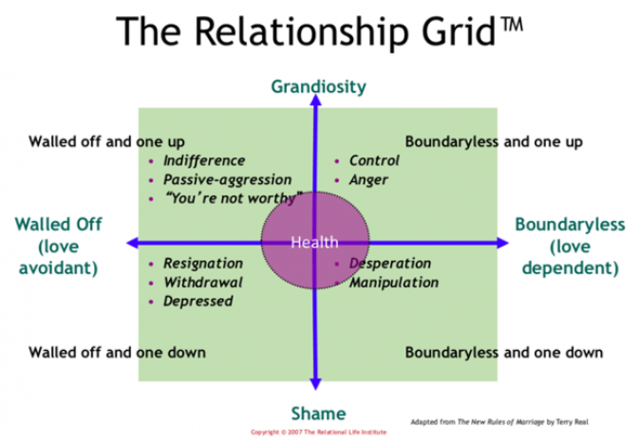Marriage Counseling
Some couples seek counseling to help make a good relationship better. With these couples, I call heavily on the Gottman Method, a highly-evidence based approach. We tend to focus on developing communication skills, carving out quality time for the relationship, and managing conflict.
For couples seeking help because they are the brink of separation, I draw from the work of the couples therapist and author Terry Real. According to Real, we are exquisitely poised to select partners who trigger us. When we find our partner, we tend to think we’ve found someone who will rescue us from our problems, but eventually we come to feel we’ve made a terrible mistake and that we’ve found someone who actually pokes our deepest wounds. Real says this is when marriage really begins, and that learning how to show up differently at this stage can prompt deep healing that can strengthen you and your relationship. We’re hurt in relationships and we heal in relationships.
In our first session, I almost always introduce Real’s Relationship Grid to help us get on the same page about key dynamics present in the relationship. Do you view yourself as better than your partner (“one up”) or unworthy of them (“one down”)? And how does your partner view and treat you? We often aren’t aware of the answers to these questions, but if your partner thinks you aren’t worthy of them, you are both probably pretty miserable.
As the author Pia Mellody defines it, healthy self-esteem is somewhere between less than and better than. Her favorite parenting attitude is that children are special - just like everyone else. If our parents don’t make us feel valuable, or if they put us on a pedestal, we fail to develop healthy self-esteem and tend to vacillate between the extremes of shame and grandiosity. In the pickup line at school we see another parent yelling at his child and think, “I never do that, I’m such a great parent.” Then a Mercedes pulls up behind our seven-years-used and beaten up car and we think, “I don’t measure up.” We need to learn to embrace Mellody’s mantra that “All people have inherent worth. No one is more or less valuable than another.” Healthy self-esteem is what allows us to exercise healthy boundaries in relationships, protecting ourselves against other people’s mistreatment, asserting our needs, being emotionally intimate and vulnerable, absorbing others’ affection.
